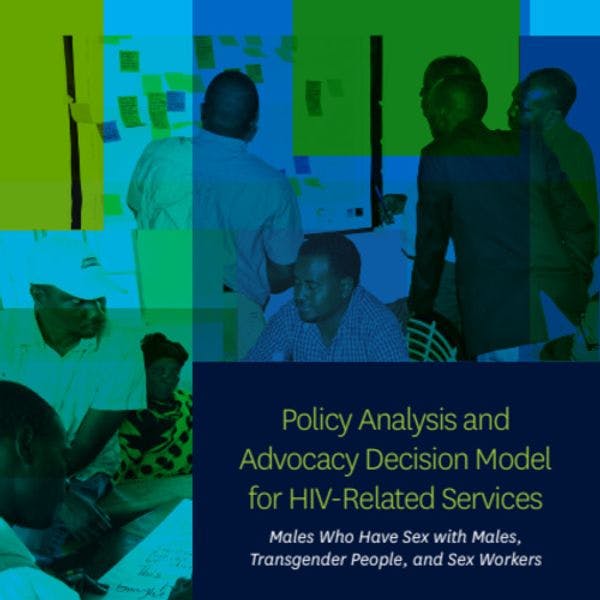Policy analysis and advocacy decision model for services for sex workers, transgender, and males who have sex with males
The Health Policy Project (HPP) HIV policy analysis and advocacy decision models are systematic structures and methodologies designed to help stakeholders create an inventory of country policies, analyze these policies against international best practices and human rights frameworks, assess policy implementation, and create a strategic advocacy plan.
Decision models are grounded in international human rights and best practices and allow for policy analysis and comparison across country and regional borders. The primary goal of the model is to identify the policies that most directly affect access to and sustainability of key services and the needs and opportunities for policy advocacy that will improve access to services in both near and longer terms.
Designed to help country stakeholders build a public policy foundation that supports access to and implementation and scale-up of evidence-informed services for MSM/TG/SWs, the Decision Model helps to clearly identify and address policy barriers to services. Its policy inventory and analysis tools draw from the extensive body of international laws, agreements, standards, and best practices related to MSM/TG/SW services, allowing the assessment of a specific country policy environment in relation to these standards. This customizable, in-depth, and standardized approach will build stakeholders’ capacity to identify incremental, feasible, near-term opportunities to improve the legal environment and the resulting quality of and access to services for MSM/TG/SWs while long-term human rights strategies are implemented.
Keep up-to-date with drug policy developments by subscribing to the IDPC Monthly Alert.
